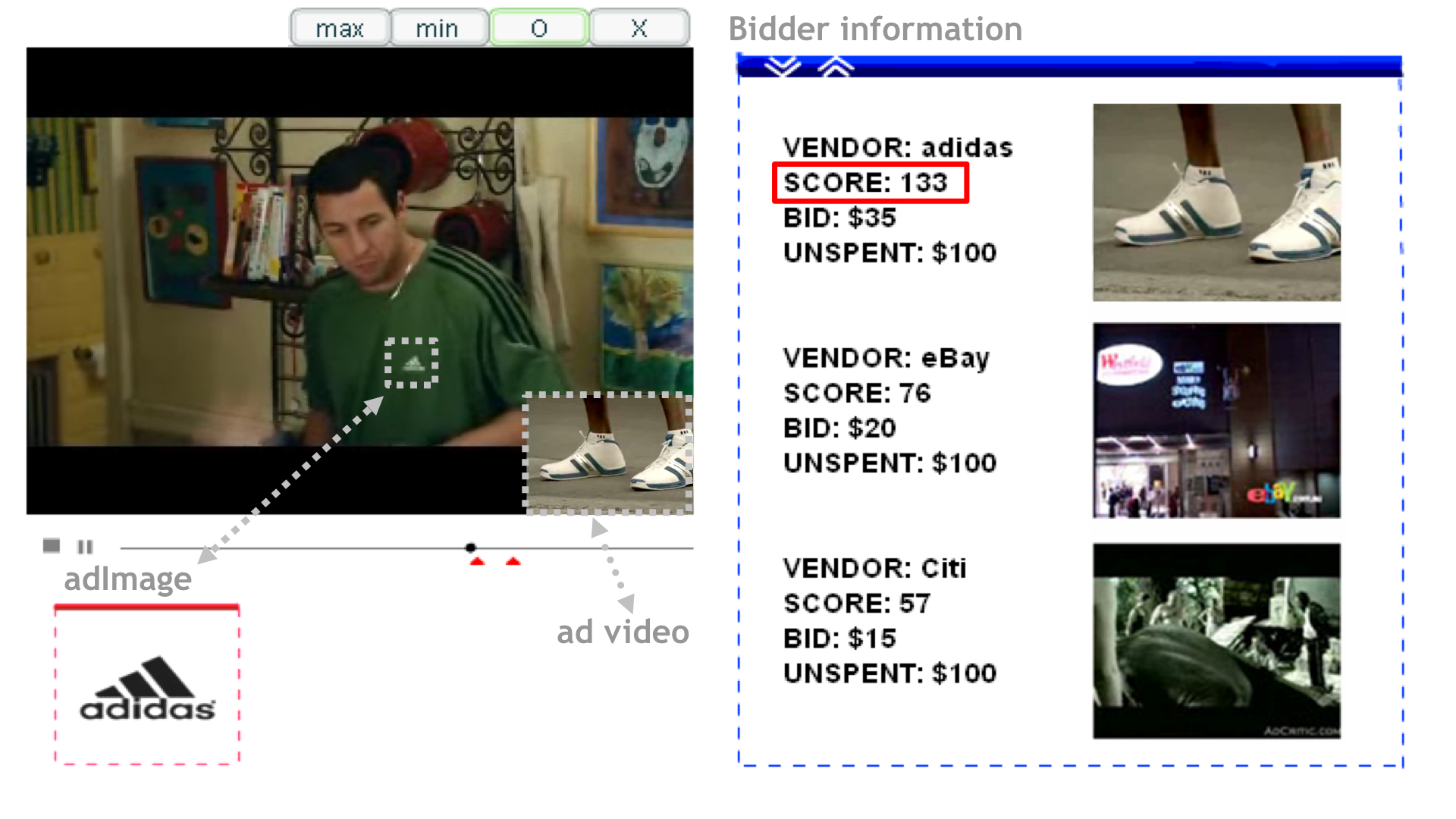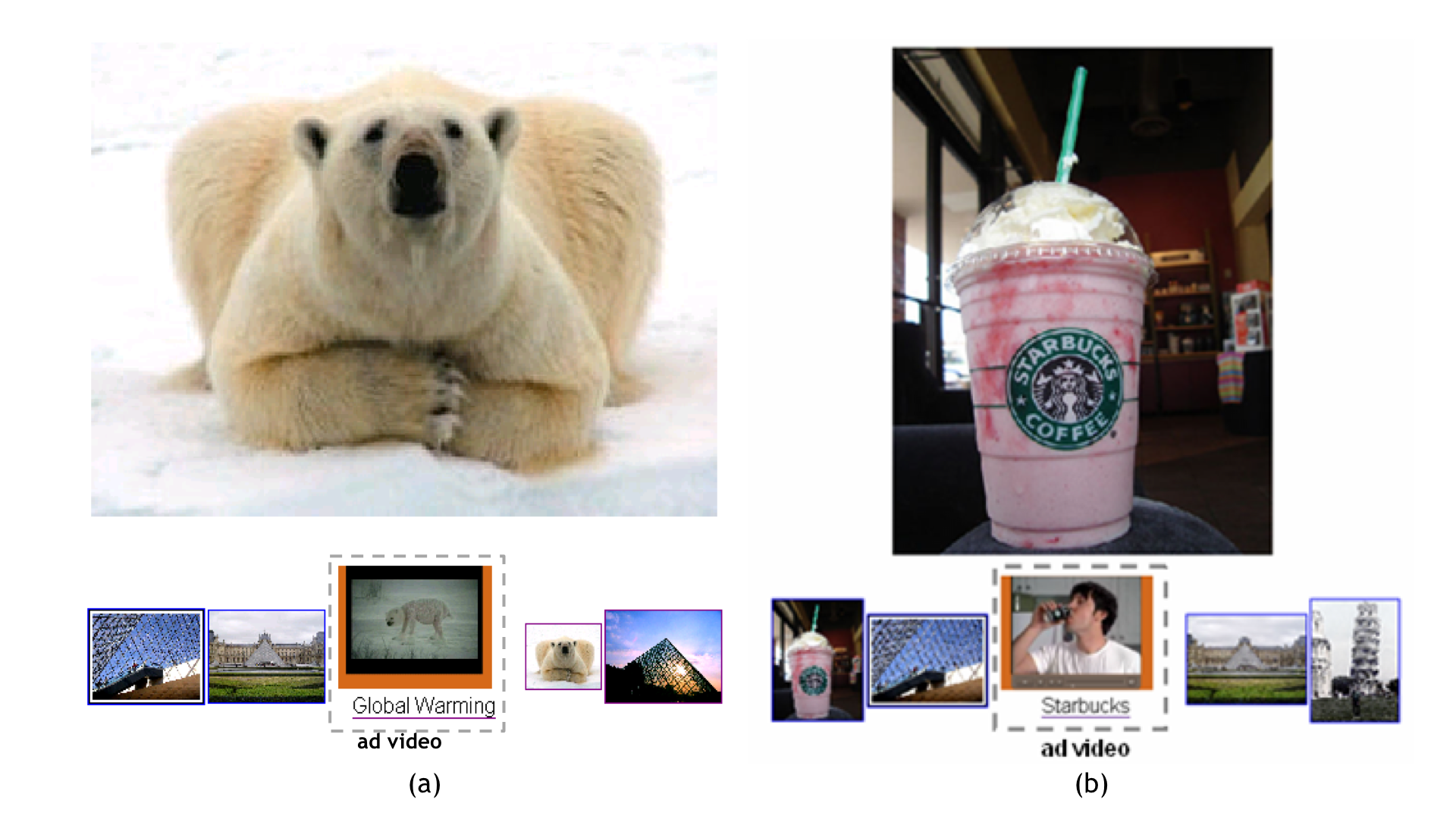 |
Visual-based Contextual Video Advertising |
Objective
Associated relevant ads to shared photos/videos by content-based and semantic-based visual matching with an ad scheduling algorithm to optimize system revenue and user perception.
Papers
- "AdVis: Contextual Video Advertising by Visual Matching and Ad Scheduling Optimization," Kuan-Ting Chen, Wei-Shing Liao, Winston H. Hsu, Technique Report, 2013.
- "AdImage: Video Advertising by Image Matching and Ad Scheduling Optimization," Wei-Shing Liao, Kuan-Ting Chen, Winston H. Hsu, ACM SIGIR International Conference on Research and Development in Information Retrieval, Singapore, July 2008
- Demo video
- System and Method for Inserting Advertisement in Contents of Video Program U.S. Patent US8191089B2
- Taiwan Patent Application: #97134632
- 3rd Place Award, The Cooperative Workshop of CyberLink Corp. and CMLab, April 2009
- 3rd Place Award, The Cooperative Workshop of CyberLink Corp. and CMLab, April 2008
- Top-5 Award ImagineCup Software Design Competition, hosted by Microsoft, Taiwan May 2008
Abstract
AdVis is a novel advertising system, which automatically associates relevant ads by two promising methodologies - content-based and semantic-based visual matching. Analogous to AdWords (the prevailing text-based advertising system), the former specifies ad targets by characteristic images, referred to as adImages, and the latter by high-level semantic concepts or events, referred to as adConcepts. AdVis avoids the pitfalls of poor tagging qualities in shared videos and provides an innovation venue to specify ad targets by visual matching. The rich contextual video constituents along the temporal dimension can also be exploited for advertising. To maximize ad system revenues and user perception, visual matching scores and parameterized bidding information were formulated as an optimization problem. Through preliminary experiments, it was found that the proposed visual matching methods were able to cope with distortions commonly observed in shared videos. The ad scheduling algorithm providing contextually relevant ads to viewers was effective, as demonstrated by subjective evaluations.
 |
 |